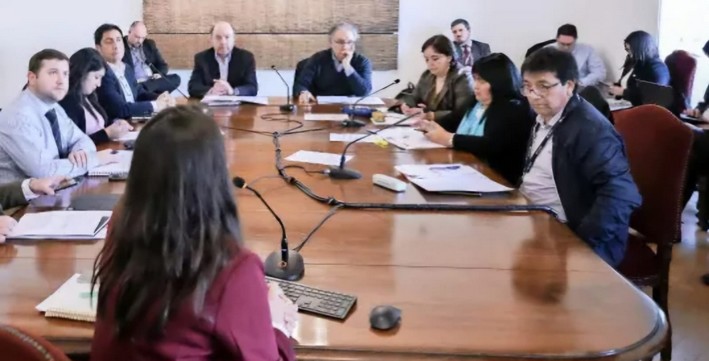- Measures proposed by the body to the head of state will address land demands, indigenous development, constitutional recognition, institutional framework, and victim reparations.
Coinciding with the dismissal and replacement of Juan Pablo Leonelli, one of the eight original members of the Peace and Understanding Commission—who was remanded in custody on Wednesday, August 28, after being formally charged with repeated tax fraud in the "Manicure" strand of the agreements crisis—this week the body began analyzing the major "thematic axes" dividing its work. These must conclude in November with the review of proposals drafted by its advisors.
To maintain balance, the group incorporated Nicolás Figari as a new member, who had been serving as one of the support professionals for the body appointed by President Gabriel Boric.
In the final stretch of its task, with a maximum deadline of 90 days (if the final document is delivered on November 30 and not earlier), Thursday saw the presentation of proposals addressing indigenous development, constitutional recognition, institutional framework, and reparations for victims of violence. A future session will tackle what is considered the "mother of all battles": the chapter on land claims.
The executive secretariat dismissed the notion that the body has entered its final phase. "We’ve held 38 sessions. Each has explored possible paths and options, but the commission will deliver its proposals within the established deadlines," they stated in writing in response to inquiries from *El Mercurio*.
They added, "We continue to receive many analytical inputs. In fact, the Children’s Ombudsman attended Thursday’s session, and in the coming weeks, we will hold additional hearings."
The final proposal will require unanimous approval from all commission members: DC senator and co-chair Francisco Huenchumilla; former Minister of Social Development and co-chair Alfredo Moreno; Republican senator Carmen Gloria Aravena; Socialist deputy Emilia Nuyado; former mayor of Tirúa Adolfo Millabur; president of the Malleco Farmers' Association Sebastián Naveillán; head of the Biobío Regional Government’s Indigenous Peoples Unit Gloria Callupe; and newly incorporated Figari, a lawyer from the Aitué Intercultural Foundation and former secretary of the Presidential Commission for La Araucanía, led by the late Bishop Héctor Vargas from 2016 to 2017.
While commissioners agree the coming weeks "will involve intense work," all rule out extending the deadline. The executive secretariat confirms this: "The commission continues working toward the established date. No changes have been decided. We’ve always said November, and the exact day will be determined by the commission."
Regarding whether the thematic axes cover all areas to be proposed to the President, Senator Aravena notes that "most are included, but some may fall under other sections, such as education or social issues." She also believes the Indigenous Law is a recurring element across nearly all axes.
Development
Discussions on state measures to lift indigenous communities out of poverty highlight their insufficiency, lack of clear focus or transparency, and the need for reformulation and reorganization to effectively generate productive activities in rural areas.
Recognition
The analysis of granting constitutional status to the ten indigenous peoples recognized by the Indigenous Law notes it has been an electoral campaign issue for 35 years, with comparative insights from other countries. If adopted, the scope of implementation must be defined.
Institutional Framework
Options for centralizing indigenous policies are evaluated here. Amid criticism of the Indigenous Development Corporation (Conadi), proposals include a ministry or undersecretariat for indigenous affairs.
Reparations
This chapter addresses state compensation for victims of violence. The cutoff date for inclusion must be settled—past proposals have suggested considering cases filed since 2000 or starting from the first attack in 1997, or even earlier.
Land Claims
Experts are still drafting a proposal on this issue, to be presented to commissioners in the double session on the 12th and 13th of this month. It must include a registry of lands granted to communities, pending claims, and alternative compensation measures.
Source: subscription edition ofEl Mercurio







Comments (0)
No comments yet. Be the first to comment!
Leave a comment